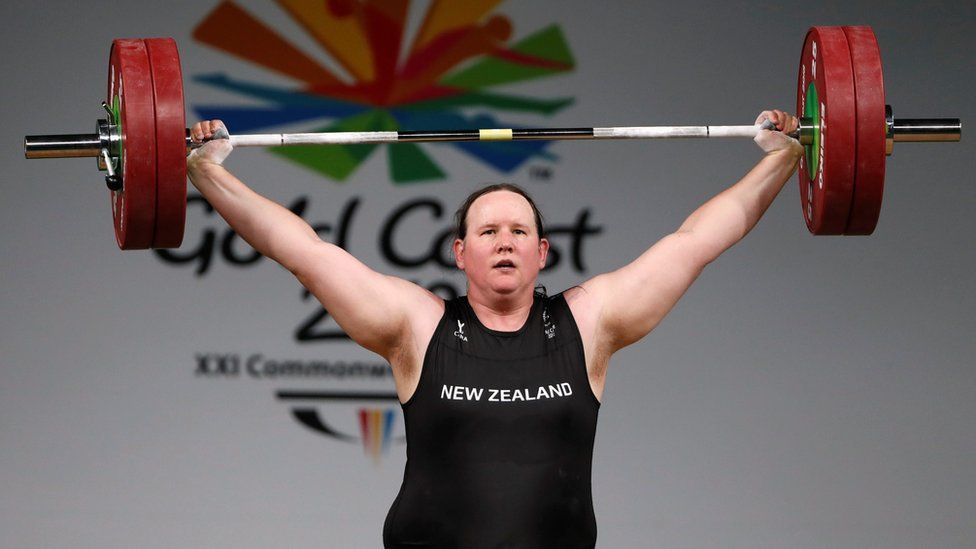The International Swimming Federation, FINA, in its Extraordinary Congress on 19 June, 2022 voted to stop transgender athletes from competing in women’s elite competitions if they have not completed their transition by the age of 12 years.
TRANSGENDER WOMEN IN SPORTS: IDEOLOGY OVER BIOLOGY?
Is Emma Weyant, the 20-year-old Olympian and current University of Virginia swimmer, the real winner of the 2022 National Collegiate Athletic Association, NCAA, 50-yards freestyle swimming event?
She was second to her transgender rival, Lia Thomas, even with her personal best of 4.34.99 which was 1.75 seconds slower than Thomas’.
However, Florida governor, Ron DeSantis, signed a proclamation declaring her the ‘rightful winner.’
Governor DeSantis said ‘Women have fought for decades to have equal opportunities in athletics, and it is wrong to allow ideology to erode these opportunities.’
He accused the NCAA of putting ‘ideology over biology’ by allowing Thomas to compete.
Florida passed a law, The Fairness in Women’s Sports Act, in 2021 banning transgender female athletes from college sports.
This implies that an athletes’ gender is the biological sex on the birth certificate.
Tokyo 2020 was unique for being the first time openly transgender athletes competed in the Olympics.
It was also the first in which an openly transgender woman will win an Olympic gold medal.
An openly transgender footballer, Rebecca Quinn of Canada, helped her country beat Sweden to win her first ever Olympics gold medal in the sport on 6 August, 2021.
Canada earlier beat top favourites, USA, in the semi-finals in the competition.
The World Athletics guidelines of 2019 require all female athletes to have testosterone levels in serum under 5 nanomoles per litre for 12 months before their first competition.
The International Association of Athletics Federation, IAAF, in 2011 came up with standards in “Regulations Governing Eligibility of Females With Hyperandrogenism to Compete in Women’s Competition,” and settled on that as the standard for defining who is male or female for competitions.
The normal level for an average woman is 0.1 – 1.8 nmol/L.

Testosterone is involved in increased muscle mass and strength and better blood oxygen supply.
As a result, men are generally faster and stronger and should not compete against female athletes in women sports.
IAAF rules provide the guidelines for deciding all cases, including borderline cases, like that of the South African runner, Caster Semenya.
This is for fairness in sports.
There have been cases of men masquerading as women just to cheat in sporting activities.
A celebrated case is that of Ewa Klobukowka, Polish gold medalist in two track events (100 metres and 4 x 100 metres relay) in 1964 Olympics who failed a compulsory chromosomal analysis in the 1968 Olympics.
She is the first to fail an Olympics sex verification test.
Helen Stephens of US won the 100 metres race in the 1934 “Hitler Olympics” in Berlin and was accused of being male by another US athlete, Stella Walsh, who was runner-up in the event.
Stephens took a test and passed.
However, almost 30 years later, Walsh was killed in a cross-fire during a bank robbery in US and an autopsy revealed she had male sex organs or the so-called ambiguous genitalia and abnormal sex chromosomes.
There is therefore a chance that male athletes may cheat or wish to gain undue advantage over female athletes and unfairly rob them of their glory.
CeCe Telfer, the first openly transgender woman to win an NCAA in 2019 was excluded from the US Olympics trials in the 400-metres hurdles for not fully satisfying the rules.

Global criticism greeted the inclusion of Laurel Hubbard – the New Zealand weightlifter who won a silver medal in the 2017 World Championships – in that country’s Tokyo Olympics team.

She and Quinn of Canada are the first openly transgender women to compete in the Olympics.
The 43-year-old competed in the 87-kilogram-and-over weightlifting category in Tokyo.
Sport is for all and excluding people for their orientation when they meet the guidelines may bother on human rights violations.
Transgender athletes complain of verbal abuse, discrimination and even threats.
Scientific studies show that the strength advantage disappears after two years of commencing hormone therapy.
Transgender athletes, like Fabienne Peter, who in 2018 was the first transgender woman to compete in Swiss ice hockey, confess that after one year they felt they lost all manly strength and characteristics in them.
The International Federation of Sports Medicine in Lausanne cannot fully confirm if transgender female athletes have an advantage because available data for such a study, it says, is insufficient.
Has the new rule by FINA stopping transgender women who transition after the age of 12 years, like Lia Thomas, made the sport of women swimming fairer?
The debate continues.
Meanwhile, the case against the full inclusion of transgender women was not helped by the case of Demi Minor:
She was transferred to a men’s prison.
Photo credit: bbc, twitter, sun, instagram











